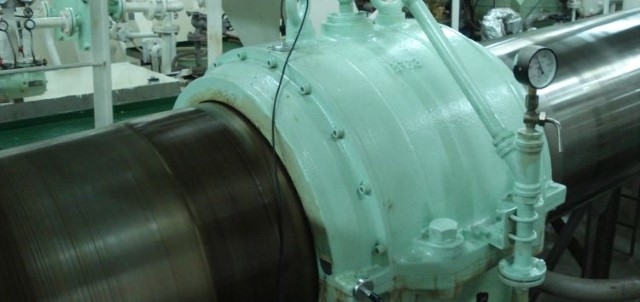
 Industry News
Industry News

A surge in shaft bearing failures on newbuild ships has been linked to propulsion changes introduced in response to IMOвҖҷs Energy Efficiency Design Index (EEDI).
Between 2013 and 2017 an estimated 200 vessels suffered from shaft bearing failures, according to shipowner reports to ABS. Incidences appeared to slow in 2018, alhough it cannot be determined whether this is a result of effective intervention or the slow pace of newbuilding. From 1 January 2013, all IMO-regulated newbuilds were required to meet progressively tighter efficiency requirements under EEDI.
ABS Global Ships Systems Centre director Dr Chris Leontopoulos explained that the need for greater efficiency had led to smaller enginerooms, slower rotating engines and heavier propellers connected by shorter and thinner propeller shafts. These have combined to amplify forces acting on the shaftline, resulting in increased incidence of shaft misalignment and failures in the stern tube bearings that support shafts.
Big vessels including very large crude carriers, ultra large container ships and bigger gas carriers are particularly prone to shaft misalignment, because of the greater propulsive power and forces acting on their flexible hulls. Dr Leontopoulos noted that mid-sized vessels where the forward stern tube bearing had been removed to accommodate smaller engineroom designs were also regarded as вҖңshaft alignment sensitiveвҖқ.
The impact of these changes can be reduced by using double-sloped bearings, which optimise the shaftвҖҷs contact with the bearing. вҖҳRunning inвҖҷ of bearings, by gradually rotating the propeller shaft faster before the ship is put into operation, also helps to optimise the surface area supporting the shaft.
These measures are included in updated shaft alignment rules introduced by ABS, which has also introduced enhanced shaft alignment guidance and notations. Other class societies including DNV GL and LloydвҖҷs Register have also updated their rules. Dr Leontopoulos is the manager of a project team developing the first unified requirements on shaft alignment at the International Association of Classification Societies. He expects that the first unified requirements on shaft alignment will be published next year.
Dr Leontopoulos noted the recent controversy over environmentally acceptable lubricants (EAL) but said that he had never seen a case of stern tube failure caused solely by the use of EALs. However, he admitted that mineral oils might have provided a greater safety margin in cases of extreme shaft misalignment.